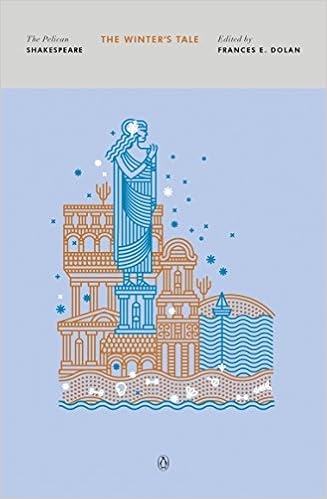
The acclaimed Pelican Shakespeare series edited by A. R. Braunmuller and Stephen Orgel
The legendary Pelican Shakespeare series features authoritative and meticulously researched texts paired with scholarship by renowned Shakespeareans. Each book includes an essay on the theatrical world of Shakespeare’s time, an introduction to the individual play, and a detailed note on the text used. Updated by general editors Stephen Orgel and A. R. Braunmuller, these easy-to-read editions incorporate over thirty years of Shakespeare scholarship undertaken since the original series, edited by Alfred Harbage, appeared between 1956 and 1967. With definitive texts and illuminating essays, the Pelican Shakespeare will remain a valued resource for students, teachers, and theater professionals for many years to come.
For more than seventy years, Penguin has been the leading publisher of classic literature in the English-speaking world. With more than 1,700 titles, Penguin Classics represents a global bookshelf of the best works throughout history and across genres and disciplines. Readers trust the series to provide authoritative texts enhanced by introductions and notes by distinguished scholars and contemporary authors, as well as up-to-date translations by award-winning translators.
Alas, this has to be one of my least favorite of the plays I’ve read in these two years now. The story was simply to fantastic for me to be able to sustain any suspension of disbelief. I tried, but just couldn’t muster what it took. In the early part of the play in which King Leontes of Sicily is with his beloved wife and dear royal friends from Bohemia, there was such love and kindness, lightness and joy, that I thought I was in for something light and joyful. Sounded fun. But, in the blink of any eye, with virtually no reason whatsoever, the king is reduced to a raging jealous husband, blind beyond belief. I was just pulled up short. Can this really be? And then in short fashion all sort of grief comes crashing down on the kingdom and major players. His young son dies, he wife dies and his newly born daughter is lost.
Well, okay, the king sort of deserved what he got. But I wasn’t in any way convinced by Shakespeare’s treatment of the shift in the king, nor, all of a sudden, his great grief and misery at what he had done.
Then, in the next scene, now about half way through the play, we are ushered into what seemed to be a new play. But, we now discovered his young daughter, now 16 is alive and well, living with a shepherd, her adopted father, and his son. The noble men of Bohemia are back in Italy at least (but seemingly not Sicilia) and discover the child, not knowing who she is, and one of the princes of Bohemia falls in love with her upon sight. She has, we are assured, a sort of royal look and way about her. I guess Shakespeare still brought into the notion of royal birth actually made people different from the rest of us.
In a mad rush of confusion all gets resolved in ways that involve even more challenges to my ability to hang with the play. I found it just too over the top for me.
Scene by scene at the very beginning and at the end, when all in coming together, there was a lot of joy and lightness and very pleasant writing, but the play as a unit just didn’t work well for me.
No comments:
Post a Comment